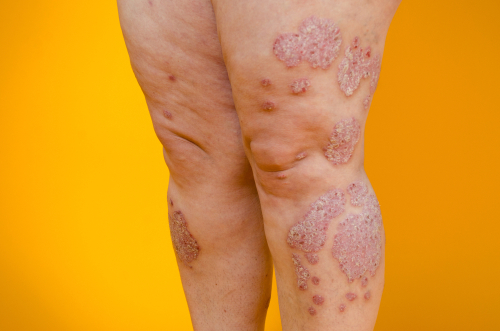A high-resolution spatial and transcriptomic atlas of IL-23 blockade in skin provides new insights on treatment response and resistance in psoriasis patients.
Psoriasis vulgaris and other chronic inflammatory diseases improve markedly with therapeutic blockade of IL-23 signaling, but the genetic mechanisms underlying clinical responses remain poorly understood.
The study, which was led by Enable Medicine in collaboration with academic partners at the University of California, San Francisco (UCSF), utilized Enable’s single-cell transcriptomic analysis and spatial transcriptomics platform to unravel the molecular landscape of psoriatic lesions before and during treatment with the anti-IL-23 biologic tildrakizumab (Ilumya, Sun Pharma).
Using single cell transcriptomics, researchers profiled immune cells isolated from lesional psoriatic skin before and during IL-23 blockade.
Enable Medicine’s multimodal atlas of human disease was able to perform the indexing, annotation, and analysis of biological data points at scale, utilizing proprietary generative AI models alongside state-of-the-art algorithms.
“This high-resolution spatial and transcriptomic atlas of IL-23 blockade in skin provides a fundamental step forward in understanding how a predominant drug class reprograms pathologic inflammation. The resulting data has implications for more precisely targeting therapies in chronic diseases of the skin, joint, and gut,” says study author Raymond Cho, MD, PhD, an Associate Professor of Dermatology at UCSF in a news release. “By uncovering the complex interplay between immune cells, cytokines, and keratinocytes in psoriatic lesions, we can develop better personalized treatments that address the heterogeneous nature of the disease and improve patient outcomes.”
“This study offers unprecedented insights into the molecular mechanisms underlying treatment response and resistance in psoriasis. By elucidating the cellular and transcriptional dynamics of psoriatic lesions during IL-23 blockade therapy, this research paves the way for the development of more targeted and effective therapeutic strategies for patients with psoriasis,” adds Aaron Mayer, Co-Founder and Chief Scientific Officer of Enable Medicine, and co-author on the paper.
The study is published in Science Immunology.


